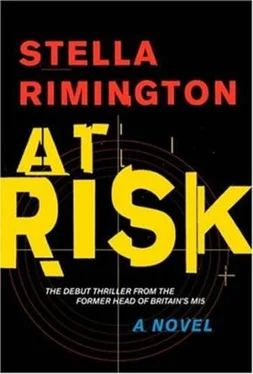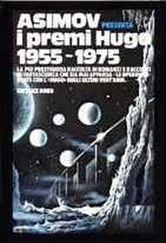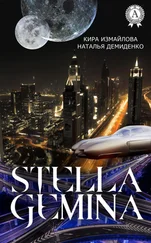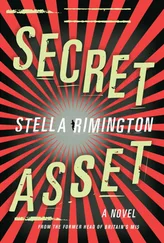“How does that sound to you, gentlemen? Ma’am?” he asked the Army officers.
They nodded. “Good enough,” said the lieutenant colonel. He turned to his fellow officers with a pale smile. “Let it not be said that we failed to protect our brave US allies from an unbalanced language student and a Pakistani garage mechanic.”
The Army personnel smiled, if only faintly. The police didn’t smile at all. “DS Goss,” Dunstan continued, “I’d like you to get yourself over to Marwell and act as our liaison with Colonel Greeley. I’m going to call him right now and put him in the picture.”
Goss nodded and left the hangar at a run, raising a farewell hand to Liz as he passed her. Kersley and the senior PO19 officer followed him out and made for the huts, in order to bring their respective teams up to date with developments.
Liz stared after them for a moment, and listened to the agitated crescendo as the Gazelle bearing Steve Goss lifted from the ground. In some way that she couldn’t quite define, events seemed to be spinning out of control. There were too many people involved, and too many services represented. On top of this, instinct told her that a miscalculation had been made. Mansoor and D’Aubigny may have been prepared to lose their lives in the course of carrying out their operation, but there was nothing suicidal in their actions so far. The idea of them hurling themselves unavailingly at a USAF base and being cut to pieces for their pains was way off beam, she was certain of that. They had another plan.
With a start, she realised that she had not yet read her message, and without further ado flipped up the screen of her laptop and logged on. The message, when she had decoded it, was a long one. Especially by Wetherby’s standards.
Liz-attached report is for urgent attention yourself, Mackay, Dunstan. Source secret and reliable.
Liz smiled at the familiar cryptic style, and opened the attachment.
TOP SECRET-BEARER EYES ONLY
RE: MANSOOR, FARAJ
At midnight on Dec. 17, 2002, following reports of ITS activity on Pak-Afghan border near Chaman, an AC-130 transporter gunship departed a USAF base in Uzbekistan (believed to be Fergana), on a search and destroy mission. On board was the AC-130’s crew plus 12 Special Operations personnel…
“Cup of tea? They’ve got Earl Grey, apparently, presumably in deference to our metropolitan palates. There’s also a rumour of shortbread fingers…”
Liz looked up from the report. “Thanks, Bruno. I’d love a cup of something. And I’m pretty starving, too, so if you can see your way to…”
“Consider it done. Anything interesting come in from the Death Star?”
“Not sure… Let you know when you come back with those shortbread fingers and that black tea with two sugars.”
“Two sugars! Do I detect a sweet tooth?”
“No.” She frowned absently, one eye on her screen. “I’m in love with my dentist.”
He sauntered off, shaking his head, his laptop swinging in its case beneath his right arm. En route to the folding plastic table designated as the canteen area, he encountered PC Wendy Clissold, who was massaging her temples and watching an Alka-Seltzer dissolve in a Styrofoam cup.
“You haven’t got anything for a pain in the arse, have you?” he asked her, loud enough for Liz to hear.
Liz smiled, and turned her full attention to Wetherby’s message. As she read, however, her smile died. The activity around her seemed to fall away, and the ambient buzz of the hangar to fade to silence. When Mackay returned she was staring straight in front of her, her hands folded, expressionless.
How much do you think they know?” asked Faraj.
“I think we have to assume that they know who we are,” said Jean after a moment’s thought. They were both speaking Urdu now. “The weak links in the chain are the driver of the truck, who saw you, and the other migrants.”
“The other migrants know nothing about me. Everything I told them was false.”
“They would recognise you. Just as the woman who rented me the house would recognise me. They know who we are, take it from me. These are the British we’re dealing with, and they are a vengeful people. They are quite happy to see their elderly starve to death on council estates or die of neglect in filthy hospital corridors, but harm the least of them-the fisherman, the old woman-and they will pursue you to the ends of the earth. They will never, ever give up. The people who are directing this operation against us will be the best that they have.”
“Well, we shall see. Let them send their best man. They won’t stop us.”
Jean frowned. “They’ve sent their best man. Their best man is a woman.”
Faraj shifted on the narrow flagstoned towpath beneath the bridge. An hour earlier they had changed out of their wet clothes into the dry ones that Jean had stuffed into the rucksacks that morning. Out of an instinctive sense of decorum they had turned their backs on each other for the purposes of this operation, but when all but naked Jean had unbalanced in the near darkness beneath the low brickwork. Flailing with her arms she had made sudden contact with Faraj, and only by grabbing her had he prevented her from falling into the river. He had held her for a moment, and then silently released her. Neither had said anything, but the incident lay between them, unresolved.
“What do you mean, a woman?”
“They’ve sent a woman. I can feel her shadow.”
“You’re crazy!” He lifted himself angrily on to one elbow. “What kind of stupid talk is that?”
She shrugged, although she knew that the gesture was invisible. “It doesn’t matter,” she said.
She heard his faint, irritated outbreath. They were lying head to head, wrapped in the thin blankets that Diane Munday had provided for her tenants. Now that Jean was dry, the cold didn’t seem quite so agonising. She had known worse in the camp. And harder ground.
“We killed two people today,” she said, the boy’s head cracking open once again before her half-closed eyes.
“It was necessary. It was not a matter for consideration.”
“I’m not the person that I was when I woke up this morning.”
“You are a stronger person.”
Perhaps. Was this strength? she wondered. This waking sleep? This frozen distance from events? Perhaps it was.
“Paradise waits for us,” said Faraj. “But not yet.”
Did he believe that? she wondered. Something in his voice-an oblique, faintly ironic note-made her unsure.
“Who waits for you in this world?” she asked. He had spoken of parents and a sister. Was there a wife?
“No one waits.”
“So you never married?”
He was silent. Through the darkness, she sensed a sinewy resistance to her questions.
“Tomorrow we may be dead,” she said. “Tonight, surely, we can talk?”
“I never married,” he said, but she knew from his tone that there had been someone.
“She died,” he added eventually.
“I’m sorry.”
“She was twenty years old. Her name was Farzana, and she was a seamstress. My parents had wanted someone well educated for me, and a Tajik, and she was neither of these things, but they… they liked her very much. She was a good person.” He fell silent.
“Was she beautiful?” asked Jean, conscious even as she spoke of the question’s gaucheness.
He ignored her and Jean, helpless, stared at the ragged crescent of night sky. Never had the distance between them felt so great. Because of the swiftness with which he had adapted to his surroundings, it had been easy to forget that he had come from a world which was about as different from this one as it could possibly have been.
“Tell me about her,” she prompted, sensing that at some level, and despite his protestations, he wanted to talk.
Читать дальше












